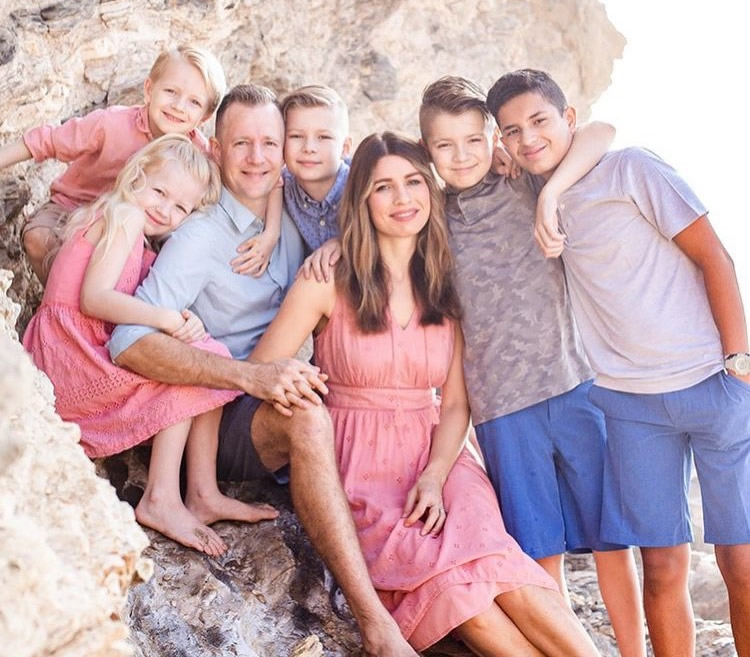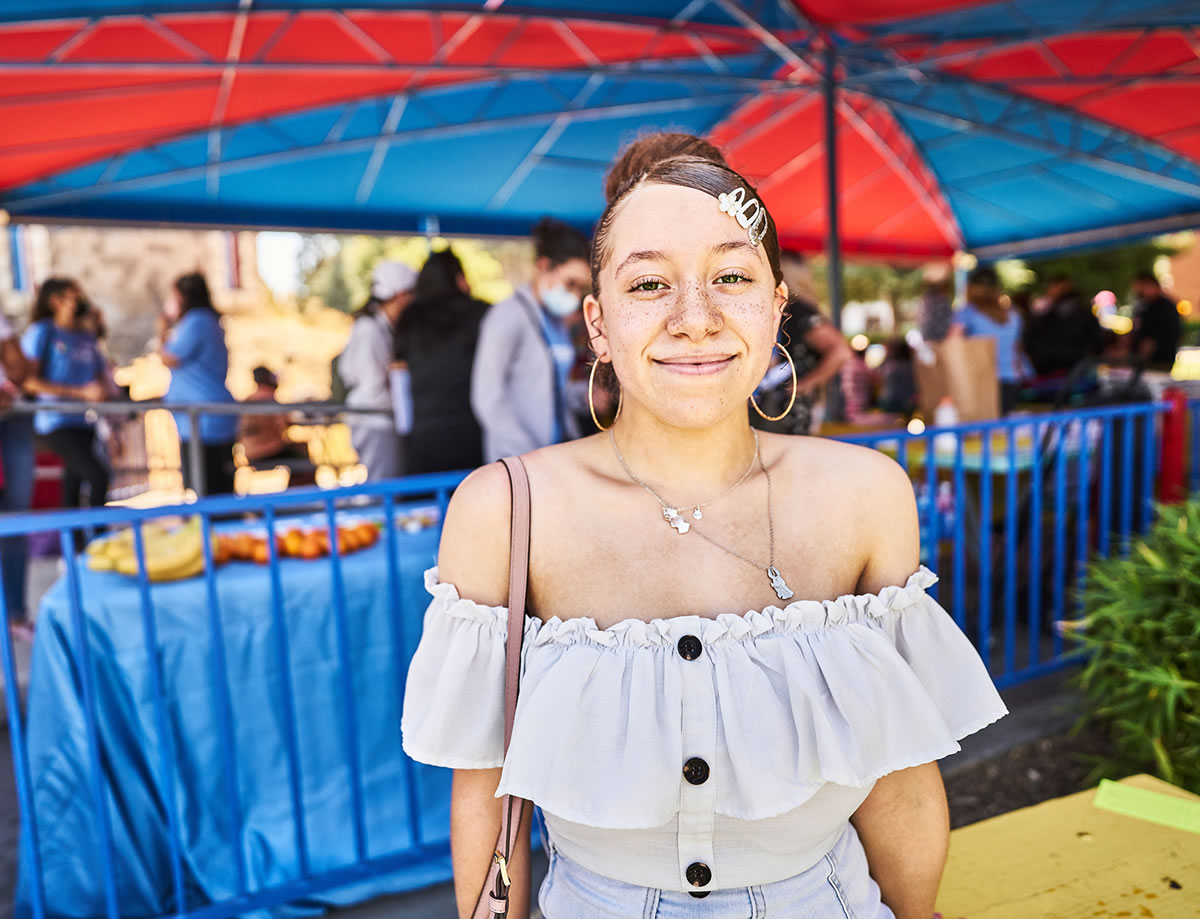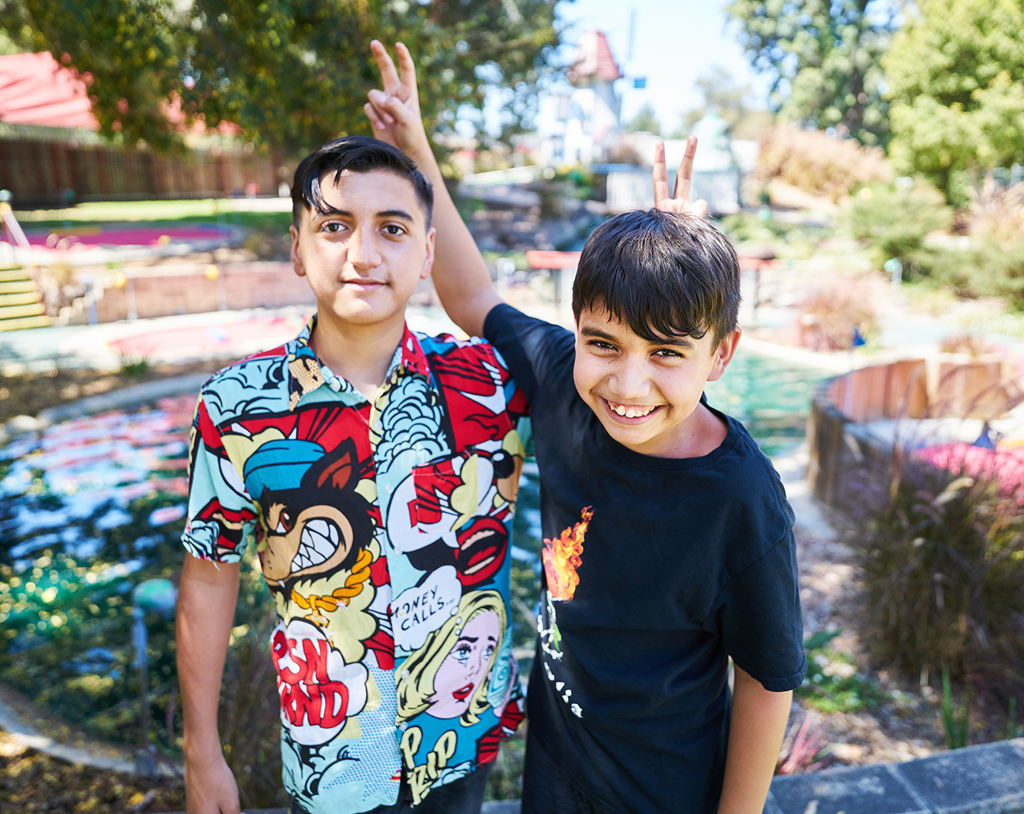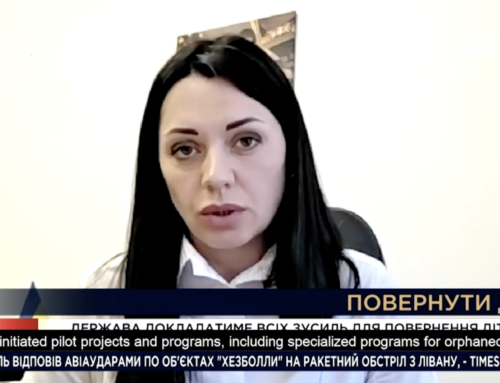A Unique Perspective on Adopting Older Children
At Kidsave we have been honored to hear many beautiful stories and tips about adopting older kids from our families. There’s a unique combination of relief, love, and anticipation from many adoptive parents we speak with post-adoption. When Sam and Milton Gilstrap adopted their son Andreas, they couldn’t wait for ordinary life to begin! “There will be no more social workers, no more courts, no more therapists, and no more bouncing from home to home,” Sam and Milton explained to Andreas. “From now on, it’s all about all of us spending time together, you, your friends, and school. We’re a regular family.”

Finding Happiness When Adopting Older Children
When talking with someone thinking about adopting older children, it’s essential to be upfront with prospective parents about the experiences of these kids. Many kids in foster care have complex backgrounds. They’ve been disappointed before and can be rightfully nervous about opening up to anyone. Certainly, they can be hesitant toward someone offering them their dream – to be adopted. Going into a potential adoptive match works best when everyone involved has as much information as possible. At Kidsave, we believe that anyone interested in adopting older children should begin their journey with eyes wide open. Our most successful matches happen when parents open their hearts to everything that makes the beautiful kids who they are. It’s truly a magical feeling when an adoptive family forms.
Over the years we’ve been honored to hear many beautiful stories from our families about adopting an older child. There’s a unique combination of relief, love, and commitment we hear in their testimonials post-adoption.
For older kids who’ve spent years in foster care, to be part of a “regular family” is something they’ve always dreamed of. At Kidsave, our biggest goal is to help those kids live that dream.
“Aging Out”
At the age of 18 or 21, kids in foster care “age out” of the system. Through no fault of their own, they entered the system. Now, through no fault of their own, they are aging out of the system – placing many of them in hazardous situations. A large percentage of these kids will be homeless as soon as they leave. They have no support system or family helping them transition to an independent life.
In California alone, over half of the kids who age out of foster care become instantly homeless. “Every year about 4,000 youth age out of care in California. According to Walden Family Services, 65% leave foster care at age 18 with no place to call home.” (Dronen 42 aging out of foster CARE Statistics). Homelessness is just the tip of the iceberg for these displaced kids.
Once they are on their own, they are at risk of various forms of violence and criminal activity. Including, but not limited to, gang recruitment, human trafficking, and sexual assault. A nationwide FBI raid in 2013 exposed that 60 percent of sex trafficking victims from over 70 cities were from foster care or group homes (Post, 2015). Many of these kids have already dealt with various levels of trauma in their early years and now face it again upon aging out of the system.
This is why Kidsave champions foster kids with such dedication; we want to see these amazing kids have a chance to find love, support, and community.



Foster kids can meet perspective adoptive or host families at a fun Kidsave events like this mini-golf event in California.
Top, we see Jolie, age 16, and Miguel, age 12 with Nicolas, age 11. See all of the kids in the galleries.
What Kidsave Does
Kidsave’s mission has always been to help older kids in foster care find the families they’re searching for. We focus on championing older kids because these kids are usually overlooked and forgotten within the foster care system. There’s a lot of unfortunate stigmas surrounding adopting older children. Many older kids in foster care have been there for years. Often, these kids have experienced trauma; they’ve been in unsafe environments and can be hesitant to trust adults. At the end of the day, they’re still just kids who need a family. They need to feel a sense of connection, support, and love from others. Since 1999, we’ve made it our mission to give these kids a voice, a choice, and a chance to find the families they have been searching for. We’re there to help whether they need a host family, a mentor, or an adoptive family.
International Summer/Winter Program
SUMMER MIRACLES
Our Summer Miracles program works to ‘match' our kids with prospective parents interested in adopting older children from outside of the U.S. These kids have in recent years been from Colombia. We work with Hague-Accredited Agency Partners to help the process go smoothly. We work with these partners specifically because they operate under the Hague Convention, which helps protect children adopted internationally. The kids stay in the U.S. for five weeks in the summer and three weeks in the winter. Once they arrive, they stay with host families who either help the kids find a forever family or to adopt them themselves!
U.S. Weekend Program
Our Weekend Miracles program is our domestic program in Los Angeles, California, and Houston, Texas. The kids who are part of our Weekend Miracles program are looking for adoptive parents or host families. Host families are somewhere between mentors and adoptive parents! Therefore, they provide kids with guidance and serve as parental figures. We value the opinions of the kids we champion. We want each of them to feel that they have a voice and a choice in their lives.
Not all kids in foster care are interested in adoption for one reason or another, and we support their decisions. As a result, for those Weekend Miracles kids who do wish for adoption, we do everything in our power to support their search. For some who join our program, it may be their last chance to be adopted.
Related Resources:
Dronen, Christina. “42 Aging out of Foster CARE Statistics.” Finally, Family Homes, 21 Feb. 2021, https://finallyfamilyhomes.org/the-problem/.
Post, Dawn. “Why Human Traffickers Prey on Foster-Care Kids.” City Limits, 23 Jan. 2015, https://citylimits.org/2015/01/23/why-traffickers-prey-on-foster-care-kids/.
“What Is the Hague Adoption Convention?” Considering Adoption |, 30 Apr. 2020, https://consideringadoption.com/international-adoption/international-adoption-processes-and-resources/hague-adoption/.




